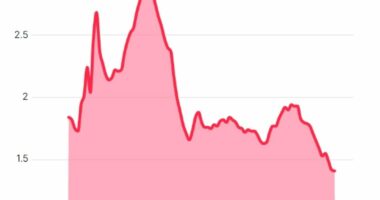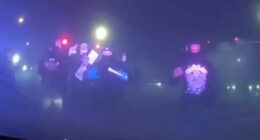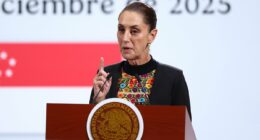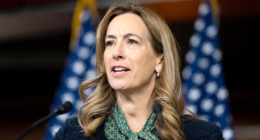Share this @internewscast.com
As dawn broke, the survivors cautiously returned to their camp, only to face a scene of unimaginable horror. The pathways were stained with blood, scattered with body fragments, and the charred remains of once-vibrant homes bore witness to the devastation. A report grimly described it as a ‘killing field’.
The assault on the Zamzam refugee camp occurred in February, executed with relentless aggression by the rebels. They bombarded the camp with artillery before invading, unleashing a wave of brutality. Random gunfire erupted, women were forcibly dragged into the streets, and any belongings that could not be plundered were set ablaze.
This attack added to the ongoing suffering of a persistently oppressed population. Zamzam had become a refuge for those fleeing the civil war in Sudan’s Darfur region, where conflict had erupted between the Sudanese Armed Forces and the RSF (Rapid Support Forces), a paramilitary faction vying for dominance.
Witnesses recall the attackers shouting familiar taunts that have reverberated through the area for years: ‘You are not Arabs. This is not your home.’
The atrocity in Zamzam was not an isolated tragedy on a continent marred by strife. Just weeks prior, 1,600 miles away in Plateau State, Nigeria, the village of Sha in Bokkos County endured its own nightmare one fateful January night.
At 10:30 pm, the roar of motorbikes disrupted the stillness as they raced toward the village. Residents, roused from sleep, initially suspected cattle thieves or bandits. However, they were soon met with the terrifying sound of machine guns. Armed with AK-47s, machetes, and petrol, the assailants stormed the village, destroying doors, firing into the night, and setting homes alight.
Three people were butchered that day and, after the nightmare finally ended, the villagers stoically carried their coffins – simple wooden affairs – to the local cemetery, a small patch of brownish dirt amid the bush.

Rebel troops of the RSF (Rapid Support Forces), a paramilitary group fighting for control of Sudan, holding weapons and celebrating in the streets of el-Fasher in Darfur

Last week, shocking reports of a massacre at a hospital in the Sudanese city of el-Fasher finally cut through. At last, people began to wonder why there had been no emergency summits
Even as they buried the dead, everyone knew it would happen again. It was merely a question of when. Armed Fulani militias made up of nomadic Islamists bent on driving out Christians have performed dozens of such massacres across Plateau State, including a series of coordinated attacks within weeks of the attack on Sha that left more than a hundred Christians dead across Bokkos and neighbouring county Mangu.
It is part of a wave of violence that has turned Nigeria’s ‘Middle Belt’ into one of the deadliest places in the world to be a Christian. Two acts of genocide. Same continent. Same modus operandi. Yet for years, the West has turned a blind eye to these outbreaks of unspeakable violence.
But last week, shocking reports of a massacre at a hospital in the Sudanese city of el-Fasher finally cut through. At last, people began to wonder why there had been no emergency summits, no social media paroxysms, no huge marches in London, Paris or New York and no sanctions of any real consequence.
Instead, apart from a few throat-clearing UN warnings, pleas for access from aid agencies and Western statements of ‘grave alarm’, the mass slaughter had passed largely unnoticed.
But last weekend the unfolding genocide in Nigeria was thrown into the spotlight too by, of all people, Donald Trump. On Saturday, the US President posted on social media an instruction to the US Department of War to prepare for ‘possible action’ in Nigeria to tackle Islamist militant groups.
Trump bombastically warned that he might send in the military ‘guns-a-blazing’ unless the Nigerian government intervened, adding that all aid to ‘the now disgraced country’ could be cut.
He even threatened to carry out airstrikes. Such action would, of course, flout the territorial integrity of a sovereign country and nothing has been heard of it since. But at least Trump’s intervention showed that he cares, which is, frankly, more than can be said for the majority of those whose lives seem devoted to relentless displays of public sanctimony.
For two years, the West’s moral attention has been monopolised by the war between Israel and Hamas. Across Europe and the US, hundreds of thousands march weekly for Palestine. Universities are blighted by ‘solidarity’ encampments. Countless Western institutions – from theatres to museums to professional guilds – issue anguished statements on Gaza.
The scale of the moral grandstanding is scarcely believable. But let us be honest about what underlies this Western outrage. Suffering, in our media-saturated age, is not judged on scale but on narrative usefulness. A tragedy must fit the script to command attention. It must offer roles that Western activists recognise and enjoy performing: the righteous protester, the brave ally, the anguished dissident speaking truth to power.
It must provide a villain who flatters Western fantasies of resistance – ideally a white, Western or Jewish oppressor – and a victim that appeals to our sense of colonial guilt.
This is why the Israelis are called ‘white colonisers’ even though most descend from expelled Arab Middle East populations and are as ‘brown’ as the Palestinians.

These vast epics of human suffering – with their mass graves, their displaced millions, their burned villages and their orphaned children – sit in the blind spot of the Western conscience

A man stands by as a fire rages in a livestock market in el-Fasher after an RSF rebel attack

Bodies lie in the street in Darfur following fighting between between the official military, the Sudanese Armed Forces, and the RSF
For swathes of the West, Gaza is less a real place than an idea which has become a kind of theatre in which keffiyeh-wearing narcissists play out their moral fantasies. The cause provides a ready-made tunic of righteousness and an emotional payoff.
It is politics as performance. Trendy urban baristas don’t get to feel like freedom fighters by bellowing about African killers or Arab militias. There is no moral glamour in calling out crimes that cannot be laid at the feet of the West.
And so the victims of these sub-Saharan genocides are abandoned – not only by governments but by the very people who insist that silence is violence.
This is not an oversight. It is a choice. Theirs is the silence of those who cannot extract any status, identity or psychological reward from acknowledging these crimes. Their outrage is not universal; it is selective – and therefore hollow.
But as this performative outrage devours the West’s moral bandwidth, the two catastrophes of almost unimaginable scale unfolding in Sudan and Nigeria are largely ignored.
In both places, the death toll dwarfs that of Gaza, with hundreds of thousands of casualties. In both places, ethnic and religious identity determine whether you live or die. In both places, the perpetrators use rape, starvation and systematic slaughter as tools of domination. The killers are almost entirely Muslim militias – Arab against African in Sudan, Islamist and ethnic militias against Christians and Muslim villagers alike in Nigeria.

Last weekend the unfolding genocide in Nigeria was thrown into the spotlight too by, of all people, Donald Trump. His intervention showed that he cares, which is, frankly, more than can be said for the majority

One particular rebel fighter known as Abu Lulu, a dreadlocked figure with a goatee, has come to symbolise the brutality of the invaders. He has boasted on TikTok of killing 2,000 people
For many activists, that complexity is either inconvenient or ruinous. And so: silence.
To understand Sudan today, one must begin with an unavoidable truth: the genocide now unfolding did not start this year, or last year, or even in the past decade.
It is the continuation of a project that began in the early 2000s, when the Sudanese regime armed Arab militias – the Janjaweed – to crush a rebellion by African communities in Darfur.
Entire villages were wiped out, tens of thousands killed, millions displaced. The world shrugged its shoulders. A smattering of celebrities wore ‘Save Darfur’ wristbands. Then the West moved on.
But the Janjaweed did not disappear; they evolved. Under their psychopathic commander, Mohamed Hamdan Dagalo – known as Hemedti – they rebranded as the Rapid Support Forces (RSF), grew rich on gold smuggling and mercenary work in Yemen and Libya, and became a formidable military force.
In 2019, after the fall of the Sudanese dictator Omar al-Bashir, the RSF and Sudan’s national army (the SAF) entered into an uneasy power-sharing agreement.
It broke down – violently – within just a few years. In April 2023, war erupted between the two.
What followed is being described by UN officials as ‘the world’s largest and fastest-growing displacement crisis’, with around 14 million people forced out of their homes out of a population of 51 million. Ethnic cleansing happened in parts of Darfur on a scale not seen since the Rwandan genocide of 1994, when at least 800,000 members of the minority Tutsi tribe were slaughtered in 100 days by ethnic Hutus.
And last week a massacre occurred in the town of el-Fasher that was so industrial in scale that the blood that flowed discoloured such a large area of ground it was visible from space.
The perpetrators of this slaughter were members of the RSF, which seized control of the army-controlled capital of North Darfur state after laying siege to it for more than 500 days.
At least 36,000 residents fled to Tawila, around 40 miles away, arriving with reports of horrifying atrocities by the marauders. ‘The dead bodies were everywhere – in the streets, inside houses and at the gates of many houses,’ one eyewitness told the Qatari media network Al Jazeera. ‘Wherever you are in el-Fasher, you will see dead bodies scattered.’
One particular rebel fighter known as Abu Lulu, a dreadlocked figure with a goatee, has come to symbolise the brutality of the invaders, who are said to have killed 1,500 civilians in the days following their takeover.
Over the past year, Abu – also known as Brigadier General al-Fateh Abdullah Idris – has been linked to a series of killings across Sudan. On TikTok he boasted of killing ‘2,000 people’ but admitted he had ‘lost count’. In el-Fasher, he was filmed confronting an unarmed restaurant owner. When asked what tribe he belonged to, the man replied that he was from the non-Arab Berti tribe. At this, ignoring his desperate pleas for mercy, Abu Lulu shot him dead.
But it was a video recorded on October 27 that attracted such widespread revulsion it led the RSF high command to order his arrest three days later.
It shows Abu and his men indiscriminately shooting healthcare workers and patients at el-Fasher’s Saudi Maternity Hospital.
In all, 460 people are reported to have been killed at the hospital in cold blood, with the Sudan Doctors Network claiming the RSF ‘killed everyone they found inside the hospital, including patients, their companions and anyone else present’.
Meanwhile Nigeria, Africa’s most populous country, is being torn apart by overlapping conflicts that together have produced a body count that, again, amounts to a multiple of the death toll in Gaza over the past decade.
In the north-east, the Islamist terrorist organisation Boko Haram and its splinter group, Islamic State West Africa Province, have waged a 13-year campaign of terror.
They have bombed marketplaces, torched villages, beheaded farmers, enslaved women and girls, and forced millions to flee.
The stories from those who escape are harrowing in the extreme: girls as young as 12 sold to fighters as ‘wives’, boys brainwashed and coerced into executing their own neighbours, parents forced to watch as militants decide the order in which their children will die. And in recent years, a second Nigerian conflict has eclipsed even Boko Haram’s brutality: the Fulani crisis across the centre of the country.
What began as disputes over land between nomadic, mostly Muslim, herders and established farming communities – often Christian – has morphed into sectarian slaughter.
In 2023 alone, more than 5,000 Nigerian Christians were murdered in targeted attacks for their faith. Entire communities are being erased in slow motion.
And yet, in the West, it still barely registers.
At first glance, Sudan and Nigeria seem like conflicts from two different worlds – one a war between rival armed forces, the other a patchwork of insurgency, terrorism and ethnic cleansing.
But look more closely and the pattern is unmistakable. Religious or ethnic identity determines who lives and who dies. Civilians – never soldiers or terrorists – are the intended targets.
These vast epics of human suffering – with their mass graves, their displaced millions, their burned villages and their orphaned children – sit in the blind spot of the Western conscience. If we truly believe that every human life has equal worth, then neither the nationality of the killer nor the colour of the victim should determine the volume of our outrage.
Until Sudan and Nigeria fill our streets with the same fury the activists reserve for Gaza, their outrage will remain a performance – and the bodies of black Africans will continue to be buried in silence.
















